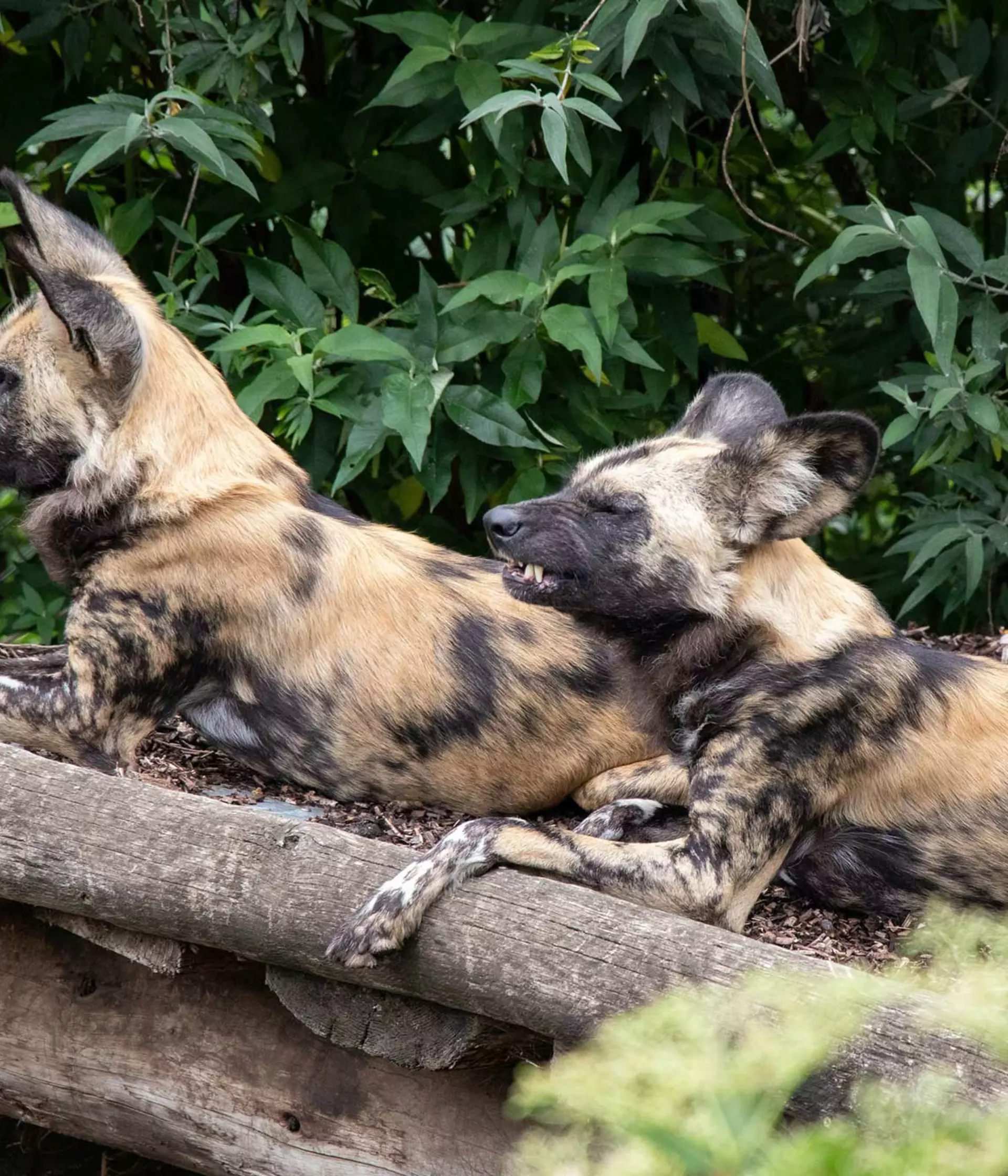Our African wild dog pack are part of a vital breeding programme for their species, designed to ensure a safe, genetically diverse back-up population of the Endangered species in zoos, in case the worst should ever happen in the wild.
According to new research from our scientists, published today, this worse-case scenario is closer than we’d hoped.
Unless we can halt climate change, their extinction is less than 100 years away, making the pack at our conservation zoo more important than ever. Because Rorshach, Deadleg, Snoop, Carlito, Lopez and Vader now have a new role to play in protecting the future of their species.
Predicting the extinction of a species
Using 16 years of data on the impacts of temperature on a population in northern Kenya to simulate how the canines will fare as the planet heats up, our scientists have modelled how the dogs will be impacted as temperatures rise due to climate change.
By studying one wild dog population in Northern Kenya, in collaboration with the Kenya Wildlife Service, the groundbreaking research found that if temperatures increase by 3°C – an increase we are on track to reach by the end of the century without immediate action to step up emission reductions – then African wild dog populations could reach an irreversible extinction tipping point as early as 2070.
It’s sobering science, and the warning bark the world must finally listen to.
London Zoo conservation: How our African wild dog pack are helping tackle climate change
It was at London Zoo that our researchers first theorised that African wild dogs could be affected by rising temperatures – when they noticed that births at the conservation zoo only occurred during cooler months. This led them to monitor packs in the wild, where they found that higher temperatures meant fewer births and fewer pups surviving to adulthood.
The pack are also helping with future research in one surprising way – because it was the London Zoo pack which tested out the tracking collars being used by our conservationists and partners working to protect the species in Kenya.
The team collaborated with our keepers to make sure the tracking collars were the right fit, were comfortable, couldn’t be shaken off, and worked properly, so that they could track important data when fitted to individuals in the wild.
This was made possible through years of patient training with the intelligent pack, which means that the dogs know their own names, can be called over to any given area when needed, and asked to sit, lie down or stand up, so keepers can check they’re all in the best of health.
This training helps desensitise the dogs to touch, so the animals can voluntarily receive injections when needed. As a result of this work, keepers can for example carry out vaccinations in a relaxed setting - without the animals needing to pay a visit to our onsite Vet Clinic. And it enabled the pack to help with the important collar trials.
This additional data, gathered through tracking collars in Northern Kenya, will further strengthen our understanding of how wild dogs, in Kenya and beyond, will be impacted by a warming planet.
Dedan Ngatia, Project Manager for the Samburu-Laikipia Wild Dog Project and PhD student at our Institute of Zoology added: “It’s through years of working with these African wild dogs that we know how they fare with warmer temperatures – but there’s still more to learn as we work to protect their future. Other populations across Africa are expected to face more extreme conditions under climate change, so while we continue refining our knowledge studying the wild dogs in Kenya, our work expanding models to other populations will build an understanding of the future of African wild dogs further afield.”
Tackling climate change and biodiversity loss
Climate change and biodiversity loss are two interlinked crises. We have a short window to reverse climate change and protect nature before extraordinary damage is done. The world needs to commit to both decarbonisation and the restoration of nature if we are to prevent African wild dogs and countless other species from going extinct.
Visit our African wild dog pack in the Into Africa area, to learn more about this incredible species, why it needs protecting, and to learn more about London Zoo conservation.
